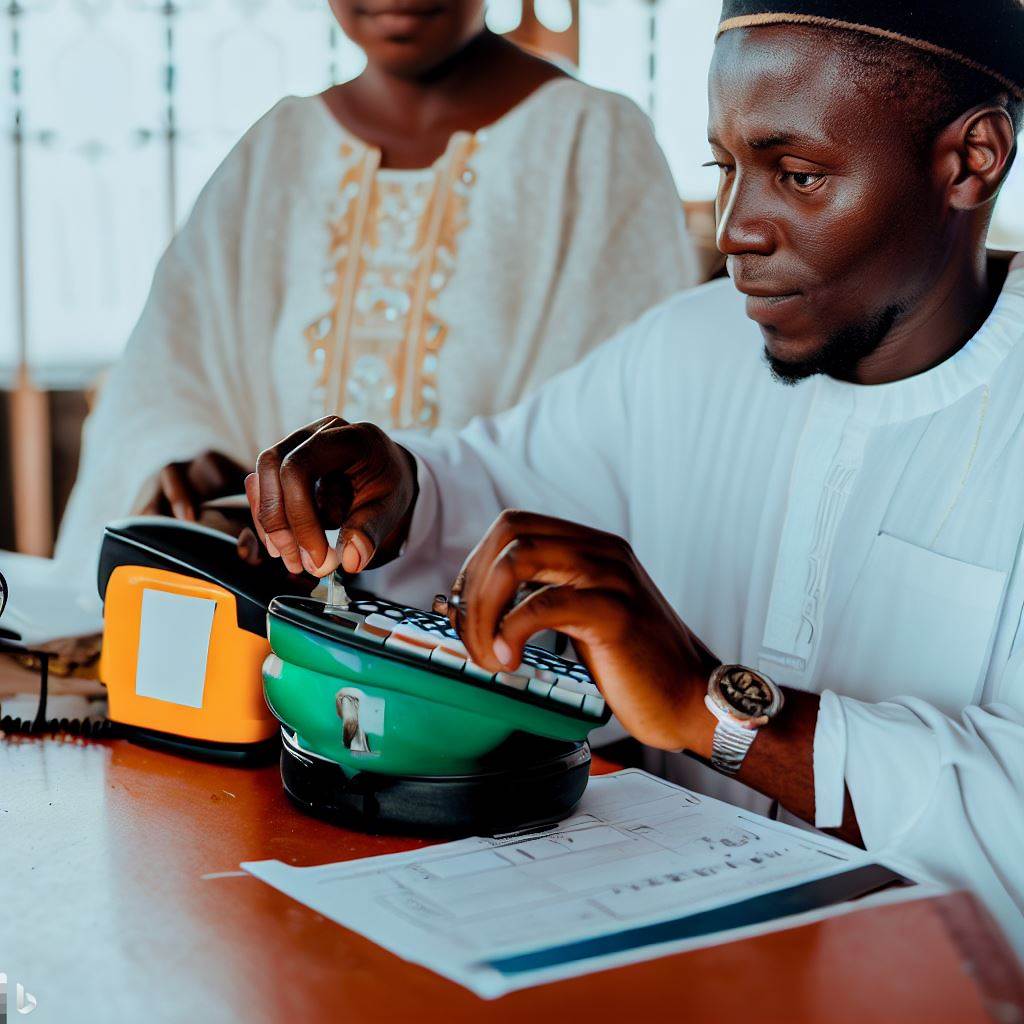Understanding the Legal Framework of International Freelancing
Key Legal Considerations
When working with international clients, it’s crucial to understand local laws.
Every country has different regulations affecting freelancing contracts.
Tax obligations may vary depending on your client’s location.
Additionally, different countries enforce copyright and intellectual property laws differently.
Contractual Agreements
Establish clear and thorough contracts to protect your interests.
Include specific terms regarding payment, deadlines, and project details.
Always define the jurisdiction that will govern the contract.
This approach minimizes disputes and clarifies legal recourse options.
Understanding Tax Obligations
Freelancers must comprehend tax liabilities in both their country and the client’s country.
Research whether a tax treaty exists between the two countries.
Avoid penalties by ensuring compliance with international tax regulations.
Consult a tax professional for tailored advice on your situation.
Intellectual Property Rights
Intellectual property rights are crucial when dealing with international clients.
Be aware of the laws that will protect your work in the client’s country.
Consider including clauses in contracts addressing ownership and usage rights.
Transform Your Freelance Journey
Unlock your potential with expert Freelance Consulting. Receive a personalized PDF in 1-3 business days, with revisions until you're satisfied.
Get StartedThis protects both parties and clarifies expectations.
Dispute Resolution Mechanisms
Choose a clear dispute resolution method in your contract.
Consider mediation or arbitration to handle conflicts effectively.
Clearly state how and where disputes will be resolved.
This avoids lengthy court processes and can save time and costs.
Importance of Contracts in Freelancing Agreements
Defining Expectations
Contracts clearly define the expectations for both parties.
They outline the work scope and objectives involved.
Moreover, they help prevent misunderstandings down the line.
Legal Protection
Contracts provide legal protection in case of disputes.
They serve as evidence of the agreed terms.
Additionally, they outline the remedies available to both parties.
Payment Terms
Contracts specify payment terms and schedules.
This clarity helps avoid payment disputes.
Furthermore, they can include penalties for late payments.
Transform Your Freelance Profile into a Client Magnet
Unlock unparalleled opportunities with a profile that stands out. We craft compelling summaries and optimize your skills to attract high-paying clients no one else can reach.
Optimize NowIntellectual Property Rights
Freelancing contracts should address intellectual property ownership.
They specify who retains rights to the work produced.
It’s crucial to clarify these terms before starting any project.
Termination Clauses
Contracts should include clear termination clauses.
These clauses detail how either party can end the agreement.
Including this information helps protect both parties’ interests.
International Considerations
Working with international clients adds complexity.
Contracts may need to comply with different legal systems.
Therefore, consulting legal experts is often advisable.
Navigating Tax Implications When Working with Foreign Clients
Understanding International Tax Laws
International tax laws can be complex and vary significantly by country.
As a result, it’s crucial to understand the tax obligations associated with international clients.
Moreover, different jurisdictions may impose different tax rates and requirements.
Identifying Residency Status
Determining a client’s residency status is essential for tax compliance.
For instance, tax residents often face higher tax obligations than non-residents.
Reveal Your Untapped Niche for Maximum Earnings
Imagine excelling in a niche where your skills shine and competition fades. We analyze markets and your talents to pinpoint the most profitable niches uniquely tailored to you—opportunities others overlook.
Find NicheTherefore, ensure you identify your client’s residency status early in your engagement.
Withholding Taxes on Payments
Withholding taxes may apply to payments made to foreign clients.
This means businesses must withhold and remit a portion of the payment to the local tax authority.
Each country has different rates and thresholds for withholding taxes.
Consequently, it’s important to research these obligations thoroughly.
Double Taxation Agreements
Double Taxation Agreements (DTAs) can prevent clients from being taxed in multiple jurisdictions.
These agreements usually benefit international businesses by reducing their tax burden.
Always check if a DTA exists between your country and your client’s country.
Understanding these agreements can help you optimize tax outcomes.
Consulting Tax Professionals
Working with tax professionals can minimize risks associated with international transactions.
Tax experts understand specific regulations that apply to your industry.
Furthermore, they can provide guidance on tax compliance and planning strategies.
Consequently, leveraging their expertise can save you time and resources.
Maintaining Thorough Documentation
Documentation is key in proving compliance with tax laws.
Keep accurate records of all transactions with international clients.
Additionally, maintain documentation that supports any tax deductions or credits claimed.
This practice can safeguard you in the event of an audit.
Explore Further: The Freelancer’s Guide to Protecting Intellectual Property in Nigeria
Intellectual Property Concerns in International Projects
Understanding Intellectual Property Rights
Intellectual property rights protect creators and inventors worldwide.
These rights vary significantly between countries.
International clients present unique challenges in IP management.
Recognizing these challenges is crucial for successful collaboration.
Types of Intellectual Property
Different types of intellectual property require attention in international projects.
Copyright protects original works of authorship, such as writings and music.
Trademarks protect brand names and logos used in commerce.
Patents safeguard inventions and processes for a limited time.
Trade secrets protect confidential business information and practices.
Challenges When Navigating IP Laws
Legal systems and IP laws differ across nations.
Some countries may not recognize certain IP rights at all.
This disparity can lead to misunderstandings and disputes.
Moreover, enforcement of IP rights can be inconsistent internationally.
Best Practices for Managing IP Risks
Establish clear contracts with international clients regarding IP usage.
Include clauses that specify ownership of IP developed during the project.
Conduct thorough research on the IP laws in each relevant jurisdiction.
Consult with legal experts specializing in international IP issues.
Additionally, register IP rights in all countries where it will be used.
Documentation and Evidence
Maintain detailed records of all collaborations and communications.
Use non-disclosure agreements to protect sensitive information.
Document the development process of any new products or content.
This documentation can serve as critical evidence in case of disputes.
Monitoring and Compliance
Monitor how your IP is used in international markets.
Be proactive in enforcing your rights to prevent unauthorized use.
Stay updated on changes in international IP laws and treaties.
Comply with local regulations to avoid potential legal issues.
See Related Content: Navigating NDAs and Confidentiality Clauses as a Nigerian Freelancer
Diverse Regulations and Compliance Requirements Across Borders
Understanding Legal Frameworks
Each country has its own legal framework for business practices.
These laws can vary significantly, affecting international collaboration.
It is crucial to understand the legal nuances before engaging with clients.
Compliance Guidelines
Compliance guidelines can differ across regions.
Companies like Global Solutions LLC must adhere to local regulations.
Moreover, compliance involves understanding tax obligations in different jurisdictions.
Resources are available to assist in navigating these complexities.
Intellectual Property Laws
Intellectual property (IP) laws protect creative works globally.
However, each country has unique IP regulations.
Understand these laws to safeguard your company’s assets effectively.
Many businesses choose to register trademarks in key markets.
Data Protection Regulations
Data protection is a critical concern when working internationally.
Regulations like GDPR in Europe impose strict requirements.
Businesses must implement robust data security measures globally.
Additionally, understanding local privacy laws is essential.
Licensing and Trade Compliance
Licensing requirements can vary based on industry and country.
For instance, medical device companies face stringent regulations.
Trade compliance ensures that businesses do not violate any international trade laws.
Companies should regularly review their compliance status to mitigate risks.
Cultural Sensitivity and Legal Considerations
Cultural differences can impact legal interpretations and compliance.
Understanding local customs is vital in building relationships with clients.
Respecting these differences fosters trust and avoids potential conflicts.
Additionally, legal counsel familiar with local practices can provide invaluable guidance.
Learn More: Understanding Taxes and How They Apply to Freelancers in Nigeria

Strategies for Resolving Disputes with International Clients
Understanding Cultural Differences
Recognizing cultural differences is essential for effective communication.
Moreover, understanding these differences can prevent misunderstandings.
For instance, different cultures have varying approaches to conflict resolution.
Some cultures prioritize harmony, while others value directness.
Being aware of these nuances fosters respect and collaboration.
Utilizing Mediation Techniques
Mediation can serve as an effective tool for resolving disputes.
It allows both parties to express their viewpoints openly.
Through mediation, clients often feel more heard and valued.
Furthermore, engaging a neutral third party can facilitate dialogue.
This approach helps maintain the business relationship while finding solutions.
Drafting Clear Contracts
Clear contracts play a crucial role in preventing disputes.
Include terms that explicitly outline each party’s responsibilities.
Moreover, specifying the governing law enhances clarity.
This consideration allows both parties to understand the legal framework.
Therefore, well-defined contracts can minimize potential misunderstandings.
Establishing Open Communication Channels
Open communication is vital in any international business relationship.
Encourage regular check-ins to discuss ongoing projects.
Moreover, prompt communication about concerns helps alleviate tension.
In addition, using technology can bridge communication gaps efficiently.
Email, video calls, and messaging apps foster immediate dialogue.
Implementing Dispute Resolution Clauses
A dispute resolution clause in contracts can clarify processes ahead of time.
Specify methods like arbitration or mediation for resolving conflicts.
Additionally, outline the steps taken before escalating issues.
This proactive approach sets expectations for both parties.
Consequently, it can lead to quicker resolution and reduced costs.
Uncover the Details: The Freelancer’s Guide to Navigating Nigeria’s Tax System Without Hassle
Ensuring Data Protection and Privacy Regulations are Met
Understanding Relevant Regulations
Data protection is crucial when working with international clients.
Regulations such as GDPR in Europe play a significant role.
Additionally, different countries have varying laws on data privacy.
As a result, businesses must stay informed about local requirements.
Identifying Your Data Processing Activities
First, map out how your business handles client data.
Identify what types of data you collect and store.
Next, determine who has access to this data.
This information is vital for compliance with regulations.
Implementing Data Protection Measures
To ensure compliance, develop a robust data protection policy.
Include secure data storage practices to prevent breaches.
Furthermore, establish clear data handling procedures.
Regular staff training on these policies is essential.
Conducting Regular Audits
Conducting audits helps maintain compliance over time.
Review data processing activities and privacy policies regularly.
This will help identify areas for improvement.
Additionally, stay updated on changes in data protection laws.
Engaging Legal Expertise
Consulting legal experts can mitigate risks effectively.
Lawyers specializing in international data protection provide valuable insights.
Their guidance ensures adherence to both local and international laws.
Moreover, they can help draft contracts that cover data protection.
Communicating with Clients
Transparency with clients builds trust in your business.
Clearly communicate your data protection policies and practices.
Additionally, inform clients about their rights concerning their data.
Promptly address any concerns or questions they may have.
Leveraging Professional Legal Advice and Resources
Understanding Legal Frameworks
Every country has its own legal framework for business transactions.
This can affect contracts, intellectual property, and dispute resolution.
Understanding these legal differences is crucial for success.
Consulting Legal Experts
Engaging a local attorney can provide vital insights.
These professionals understand the nuances of their country’s laws.
They can guide you in drafting contracts that comply with local regulations.
Utilizing Online Resources
Numerous online platforms offer legal information specific to international business.
These include legal databases, industry reports, and forums.
Using these resources can enhance your understanding of legal norms.
Implementing Best Practices
Establish standard operating procedures when dealing with international clients.
Ensure all contracts are reviewed by a legal professional.
Additionally, maintain transparent communication with clients about legal risks.
Staying Updated on Regulations
Legal landscapes can change rapidly in many countries.
Regularly monitor updates on laws affecting your business operations.
Join industry associations that provide timely legal alerts.
Documenting Everything
Accurate documentation is crucial for international dealings.
This includes contracts, correspondence, and compliance records.
Good documentation can protect you in case of disputes.
Training Staff on Legal Issues
Training your team on international legal matters can reduce risks.
Ensure that employees understand compliance requirements.
Consider workshops or seminars with legal experts as part of training.
Additional Resources
The National Security Strategy of the United States of America




